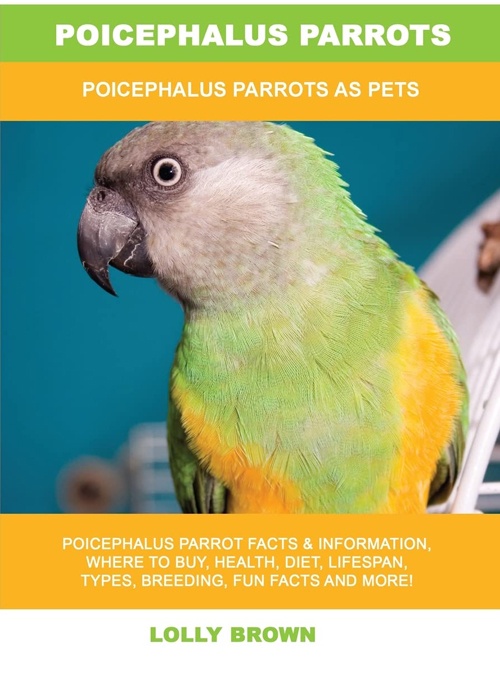TABLE OF CONTENTS
- Introduction 1
- Chapter One: Poicephalus Parrots in General 2
- Biological Information 3
- Diet of Poicephalus Species 5
- Potential Behavioral Problems 5
- Behavioral Changes in Relation to Sexual Maturity 7
- Distribution and Habitat in the Wild 9
- Threats and Conservation Status 11
- Chapter Two: Poicephalus Species and Sub – Species 14
- Chapter Three: Acquiring, Feeding and Housing Poicephalus Parrots 28
- Benefits of Acquiring Poicephalus Parrots from Hobbyists 29
- Benefits of Adopting from Rescue Centers 31
- Searching for an Avian Veterinarian 33
- Micro – chipping Your Poicephalus 34
- Cage Essentials and House Set – Up 36
- Other Parrot Essentials 41
- Housebreaking Your Poicephalus Parrot 43
- Feeding Your Poicephalus Parrots 47
- Recommended Food Brands 52
- Hand – Feeding Your Parrot 71
- Chapter Four: Grooming Tips for Your Poicephalus Parrots 74
- Grooming Your Poicephalus Parrots 75
- Cleaning Your Parrot 76
- Clipping the Wings 77
- Keeping the Beak Healthy 79
- Trimming the Nails 80
- Chapter Five: Forming a Bond with Your Poicephalus Parrots 82
- Tips in Gaining Your Bird’s Trust 83
- Handling Proper 87
- Training Proper 89
- Taming Your Poicephalus Parrot 92
- Chapter Six: Pairing Poicephalus 96
- Bonded Pairs vs. Compatible Pairs 97
- Courting and Mating 99
- Egg Laying and Nesting 100
- Nesting and Territorial Issues 100
- Signs of Sexual Maturity 102
- Chapter Seven: Raising Poicephalus Chicks 104
- Parenting 105
- Pulling Chicks 107
- Sibling Aggression 107
- Glossary of Important Terms 110
- Photo Credits 116
- References 117

